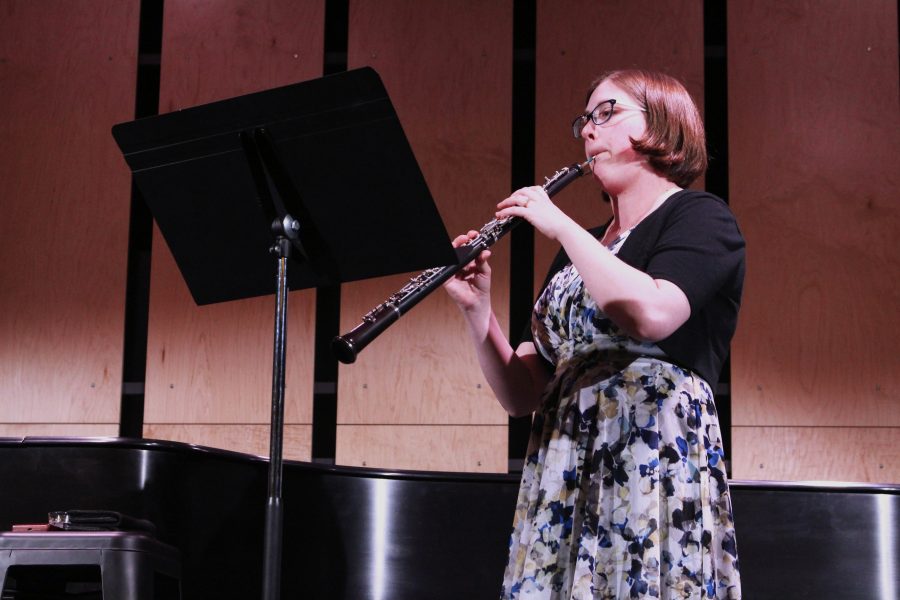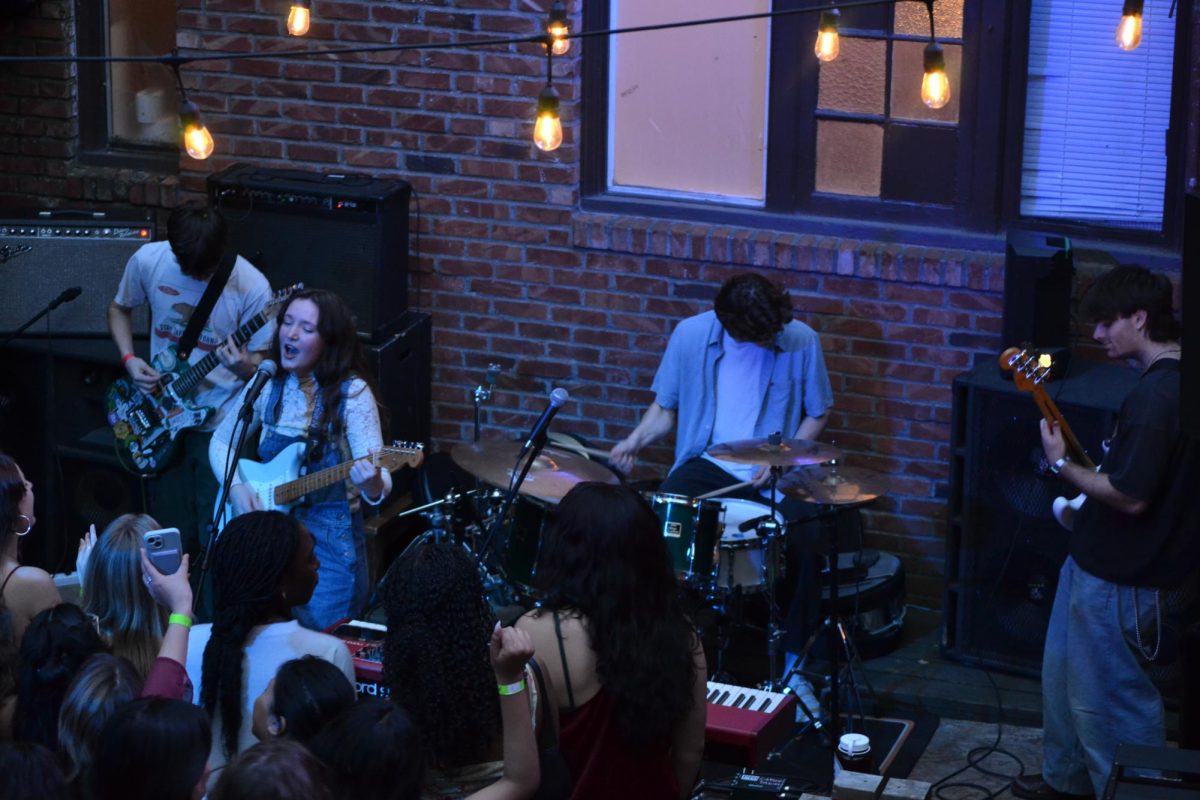Piano and clarinet combine to create harmonious music as audience members of all ages start to snap their fingers to the fox and the cat section of “The Adventures of Pinocchio.”
On Sunday, May 5, in Nickerson Studios, Seattle Pacific University professors and guest performers gathered to play music from Spanish and Latin American cultures, as well as music inspired by nature in what was called the “Family Concert for Kids of All Ages.”
While the music allowed the performers to express themselves, it also allowed them to demonstrate a deeper theme that they can connect with: the underlying meanings behind each piece.
This is due to the nature of music itself allowing people to express themselves and their observations about the world around them.
Kevin Johnson, a pianist, and Mary Kantor, an adjunct professor teaching clarinet at SPU performed together at the event.
“We are inspired by the music of Latin America,” said Kantor.
For Johnson and Kantor the music served as a way to express their love for other cultures with Johnson emphasizing how it was his love for Spain and Portugal that led him to become interested in Spanish and Latin American music.
One of the parts of their performance was based upon the “Histoire du Tango,” originally composed by Astor Piazzolla, an Argentinian tango composer.

Kantor stressed the importance of Piazzolla’s work to the popularity of tango and how it factored into their decision to play his music.
“I think Piazzolla is probably the most famous person for bringing tango into the world stage and for making it an important part of culture everyday,” Kantor said.
As they played the music, video played in the background of people dancing the tango allowing audience members to imagine the beats being played being dance to in what is an important dance in Latin America.
Another piece played by Kantor and Johnson told a very different story, but with similar roots to that of the tango piece, “The Adventures of Pinocchio,” originally composed by Alfredo Guidobaldi.
This piece tells the original Latin American story of Pinocchio. Before playing each section of the piece, Johnson read parts of the original text in Spanish.
The piece is also a reflection of the Latin American influences that both the composer Johnson and Kantor share.
“Guidobaldi is born in Italy, but considers himself a Puerto Rican, so he lives and composes there. This piece reflects his musical influences through living in Puerto Rico,” Kantor said.
This close identity to the culture of Puerto Rico reflects how music allows one to not only express themselves, but also their culture in itself.
Johnson stressed the importance of music to Spanish and Latin American culture. “I think it is a way to express their individuality,” he said.
The second half of the performance featured Linnea Wentworth, performing soloist oboe pieces that were reminiscent of nature through the sound of the oboe.
Wentworth commented how the oboe’s sound allows one to make bird sounds and other natural sounds that make many of the pieces one can play with it feature the sounds of nature.
One of these pieces was “Two Pieces for Solo Oboe,” originally composed by Rose Edwards.
Wentworth commented how beyond being one of her favorite pieces, she played it because of its storyline, which has a deeper meaning related to nature.

The clarinet was used during the Faculty Artist series. Jacky Chen | The Falcon
“It’s named after some aboriginal words. The first one [Yanada] means moon and you can hear this beautiful night sky sound and the second one [Ulpirrra] is a pipe sound and is a dance.”
This natural sound, like the cultural influences of Kantor and Johnson’s performance, allows for music to be about more than creating a beautiful sound for audiences to enjoy.
People can become more connected to the beauty of the world, whether in the various cultures across the world or in the natural world, through music.
“It’s a way to express the inexpressible. It says what you can’t say,” said Johnson.

















































































